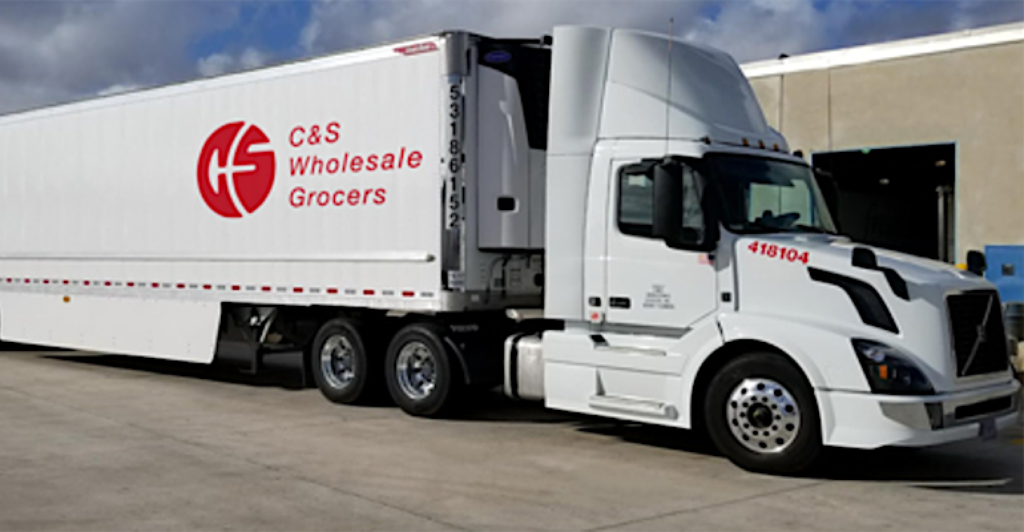 Scott Moses is a partner and head of grocery, pharmacy and restaurants investment banking at Solomon Partners, an M&A investment banking advisory firm. He writes a quarterly column for Supermarket News about sector trends, including operating, valuation, and strategic dynamics.
Scott Moses is a partner and head of grocery, pharmacy and restaurants investment banking at Solomon Partners, an M&A investment banking advisory firm. He writes a quarterly column for Supermarket News about sector trends, including operating, valuation, and strategic dynamics.
Kroger recently announced that C&S will be acquiring 579 stores to be divested in conjunction with its acquisition of Albertsons, up from the previous plan of 413 stores agreed last Fall. C&S will also be acquiring eight distribution centers, one dairy plant, two regional headquarters and several banners (Carrs, QFC, Haggen and Mariano’s), as well as licensing rights to the Safeway banner in Colorado and Arizona, and to the Albertsons banner in California and Wyoming. Store acquisitions will include any fuel centers and pharmacies associated with those stores.

This revised transaction has 40% more stores, more distribution capacity and will help C&S be an even stronger grocery retail competitor, consistent with its stated strategy to become a leading U.S. grocery retailer.
Several politicians, industry observers and other commentators have suggested C&S is not a strong buyer for this business, citing inapposite failures of unrelated acquisitions (from over ten years ago) to support their contention.
I think we should stick to the facts.
10 C&S Facts
- C&S is one of America’s largest grocery businesses, with over $20 billion in revenue and one of the largest wholesale operations in the U.S., supplying over 7,500 grocery stores across the country
- C&S is one of America’s largest private companies, with over 100 years of grocery experience
- C&S is owned by a storied grocery family, not a small private equity firm
- C&S operates retail grocery stores in multiple regions of the U.S., including the Northeast, Southeast and Midwest
- C&S is very well-capitalized to be able to invest in better prices, better wages and store improvements
- C&S has a deep management team and extensive experience successfully acquiring and integrating acquisitions
- C&S has echoed Kroger’s commitment that no stores will close and no front-line jobs will be lost as a result of the merger
- C&S is acquiring or licensing the banners of the divested stores, along with significant supply and managerial infrastructure; C&S will therefore maintain customer loyalty and continuity, remediating a key area where some previous divestiture buyers failed
- C&S was already validated by the FTC – just two years ago – as a divestiture buyer for stores that were divested out of the merger of Price Chopper and Tops in New York. Those stores are doing very well
- Perhaps most important, C&S is pro-union and will be assuming collective bargaining agreements. These stores could have been sold to a non-union operator, or to a plainly anti-union operator like Amazon, so this should be viewed as a great outcome for unions
C&S Retail Growth Strategy
C&S’s strategy to build its retail business is very smart. Owning more retail stores guarantees C&S will maintain the supply volume of those stores, which helps it better serve its customers with thousands of other independent grocery stores across the country. This is consistent with the widely-praised approach followed by SpartanNash, another grocery wholesale/retail hybrid operator that generates several billion dollars in annual sales. SpartanNash’s large wholesale foundation – supplying over 2,100 grocery stores – brings significant operational benefits to its 140+ retail grocery stores. Interestingly, SpartanNash operates ten retail banners, across nine states, having acquired another banner just last month.
At a recent investor day, SpartanNash’s CEO, Tony Sarsam, made clear just how beneficial it is to have both wholesale and retail operations: “[They] are really and truly complementary businesses … we learn things in the retail space that we can share with our customers, [which] gives us a competitive advantage as we share those ideas and those learnings with them … Our retail is not a hobby, it is a big business [that] we have scaled, actually invest in … So compared to other wholesale, we think this gives us a really, really interesting advantage.”

Following its pending acquisition of 579 Kroger/Albertsons stores, C&S will be the 8th largest U.S. grocer, with over $40 billion in total estimated grocery sales, including both wholesale and retail. This would be nearly five times the total grocery sales of SpartanNash, and nearly as much as Albertsons has today. C&S would therefore have extraordinary capacity to drive strong performance in the acquired stores while also improving service to the thousands of retail grocery stores it serves across the country.

Even just focusing on grocery retail, C&S will become the 12th largest U.S. grocer by sales, more than several significant national / discount grocers and storied regional supermarket grocers, including Family Dollar / Dollar Tree, Walgreens, Trader Joe’s, Meijer, BJ’s, Hy-Vee, Wegman’s, WinCo, Giant Eagle, HEB and Sprouts.

C&S will also be the 12th largest U.S. grocer by store count, with more U.S. stores than Costco, Amazon / Whole Foods and Trader Joe’s.

The C&S acquisition therefore ensures that the divested stores will continue to serve customers, employ union teammates and offer communities another strong grocery competitor, amid the rising tide of national / discount grocers (Walmart, Target/Shipt, Costco, Amazon/Whole Foods, Aldi, Trader Joe’s and Dollar General) that now control well over 60% of the American grocery market.
C&S will be paying $2.9 billion; they clearly intend to succeed, well-positioned to be the next great leader in U.S. grocery, likely building on its retail business over time.
Scott Moses is retained by Albertsons to educate audiences on the state of the grocery industry, a topic he has been writing and speaking publicly about for many years.


